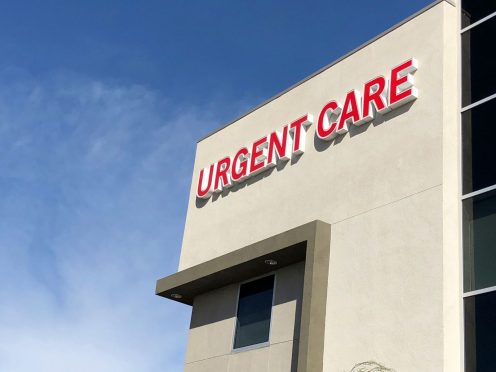This Thanksgiving has all the makings of a post-COVID holiday to remember – but not without some hazards that could land you in urgent care.
With the football and turkey also comes burns, cuts, food-related sicknesses and more. These ailments make the day after Thanksgiving the busiest day of the year for urgent care centers, according to Eric Walsh, MD, DrPH, Hartford Healthcare-GoHealth Urgent Care’s medical director.
Here are Dr. Walsh’s top four tips to ensure Thanksgiving is full of gratitude, not regret:
Caring for cooking burns
The deep-fried turkey has earned a reputation for fryer fires and burns, but the Thanksgiving kitchen is full of opportunities to scald yourself with grease or just off-the-burner soup.
So how do you assess and treat a burn?
- Run the burnt area under lukewarm or cool water (not icy cold, as this can cause more damage) for 10 to 15 minutes.
- Check the burn for size and color.
- In most cases, treat your burn with soothing creams like aloe and over-the-counter pain medications.
Immediate medical care should be sought for burns larger than 1-2 inches, those in a sensitive area, or charred skin that’s white, brown, leathery or shiny.
> Find an urgent care location near me
Prevent food poisoning
Whether its salmonella in poultry, or casseroles or gravies sitting at room temperature, bacteria can cause many kinds of stomach discomfort. To avoid food poisoning:
- Never wash your bird.
- Cook your turkey and stuffing to at least 165⁰ F, and consider making your stuffing outside the bird for a safer option.
- Keep food at 140⁰ or warmer or 40⁰ or cooler if it’s not being eaten right away.
If you do suspect food poisoning, make sure to get lots of fluids including electrolytes.
Know your knife safety protocols
Even people who don’t cook often like to take a turn in the kitchen for Thanksgiving. That means more people at the counter without proper knife skills.
More than one in every three knife-related injuries happen in the kitchen, and one in 10 ER visits is related to a hand injury.
You can protect your fingers by:
- Sharpening your knives because dull blades require more pressure to cut.
- Curl your fingers and cut away from your body when trimming or deboning.
- Keep your knives off counters and out of sinks by washing and storing them immediately.
Wash hands, wash hands, wash hands
Whether you’re trying to prevent food poisoning or the flu, the number one hygiene recommendation is to wash your hands.
When washing your hands, be sure to use soap and water for at least 20 seconds before and after touching your eyes, nose or mouth, prepping food, eating a meal, and using the restroom.


